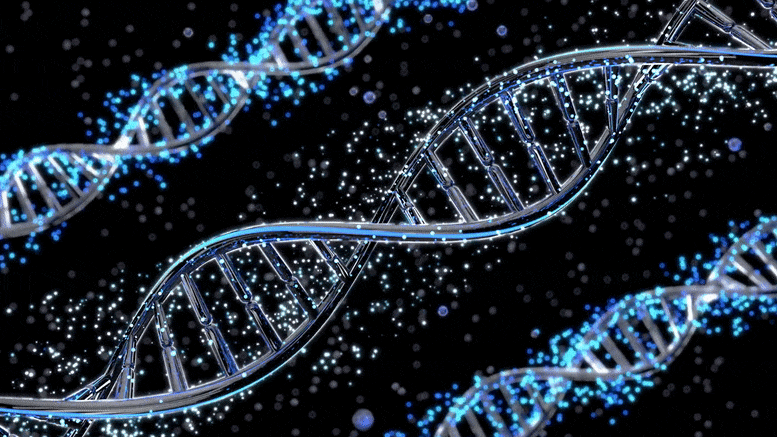New Research Finds That Gene Therapy Could Treat Pitt-Hopkins Syndrome

A new study has shown that gene therapy may be able to prevent or reverse many deleterious effects of Pitt-Hopkins syndrome
New research from the UNC Neuroscience Center lab of Ben Philpot, Ph.D., finds restoring lost gene activity prevents many disease signs in an animal model of Pitt-Hopkins syndrome, a rare, single-gene neurodevelopmental condition.
Pitt-Hopkins syndrome is a rare genetic condition caused by a mutation in the TCF4 gene on chromosome 18. Pitt-Hopkins syndrome is characterized by developmental delay, potential respiratory concerns such as episodic hyperventilation and/or breath-holding while awake, recurrent seizures/epilepsy, gastrointestinal difficulties, a lack of speech, and distinctive facial features. Children diagnosed with Pitt-Hopkins syndrome often have a happy and lively attitude with frequent smiling and laughing.
The prevalence of Pitt-Hopkins syndrome in the general population is unclear. However, some estimates place the frequency of Pitt-Hopkins syndrome between 1 in 34,000 and 1 in 41,000. The disorder affects both men and women and is not restricted to a single ethnic group.
Pitt Hopkins syndrome is classified as an Autism Spectrum Disorder, and some people who have it have been diagnosed with Autism, ‘atypical’ autistic characteristics, and/or Sensory Integration Dysfunction. Many researchers believe that treating Pitt Hopkins syndrome will lead to treatments for similar disorders because of its genetic link to autism and other conditions.
For the first time, researchers at the University of North Carolina School of Medicine have shown that postnatal gene therapy may be able to prevent or reverse many of the negative effects of Pitt-Hopkins syndrome, a rare genetic disorder. Severe developmental delay, intellectual disability, respiratory and movement abnormalities, anxiety, epilepsy, and moderate but distinctive facial abnormalities are all symptoms of this autism spectrum disorder.
The scientists, who published their findings in the journal eLife, created an experimental, gene-therapy-like technique to restore the normal function of the gene-deficient in people with Pitt-Hopkins syndrome. The medication prevented the onset of disease indicators such as anxiety-like behavior, memory impairments, and abnormal gene expression patterns in afflicted brain cells in newborn mice that would otherwise model the syndrome.
“This first, proof-of-principle demonstration suggests that restoring normal levels of the Pitt-Hopkins syndrome gene is a viable therapy for Pitt-Hopkins syndrome, which otherwise has no specific treatment,” said senior author Ben Philpot, Ph.D., Kenan Distinguished Professor of Cell Biology and Physiology at the UNC School of Medicine and associate director of the UNC Neuroscience Center.

Brain section image: protein Cre (green) delivered to cells as gene therapy via AAV. Credit: Philpot Lab (UNC School of Medicine)
Most genes are inherited in pairs, one copy from the mother and one from the father. Pitt-Hopkins syndrome arises in a child when one copy of the gene TCF4 is missing or mutated, resulting in an insufficient level of TCF4 protein. Typically, this deletion or mutation occurs spontaneously in the parental egg or sperm cell prior to conception, or in the earliest stages of embryonic life following conception.
Only about 500 cases of the syndrome have been reported worldwide since it was first described by Australian researchers in 1978. But no one knows the syndrome’s true prevalence; some estimates suggest that there could be more than 10,000 cases in the United States alone.
Since TCF4 is a “transcription factor” gene, a master switch that controls the activities of at least hundreds of other genes, its disruption from the start of development leads to numerous developmental abnormalities. In principle, preventing those abnormalities by restoring normal TCF4 expression as early as possible is the best treatment strategy – but it hasn’t yet been tested.
Philpot’s team, led by first author Hyojin (Sally) Kim, Ph.D., a graduate student in the Philpot lab during the study, developed a mouse model of Pitt-Hopkins syndrome in which the level of the mouse version of TCF4 could be reliably halved. This mouse model showed many typical signs of the disorder. Restoring the full activity of the gene from the start of embryonic life fully prevented these signs. The researchers also found evidence in these initial experiments that gene activity needed to be restored in essentially all types of neurons to prevent the emergence of Pitt-Hopkins signs.
Next, the researchers set up a proof-of-concept experiment modeling a real-world gene therapy strategy. In engineered mice in which roughly half the expression of the mouse version of Tcf4 was switched off, the researchers used a virus-delivered enzyme to switch the missing expression back on again in neurons, just after the mice were born. Analyses of the brains showed this restoration of activity…
Read More: New Research Finds That Gene Therapy Could Treat Pitt-Hopkins Syndrome

